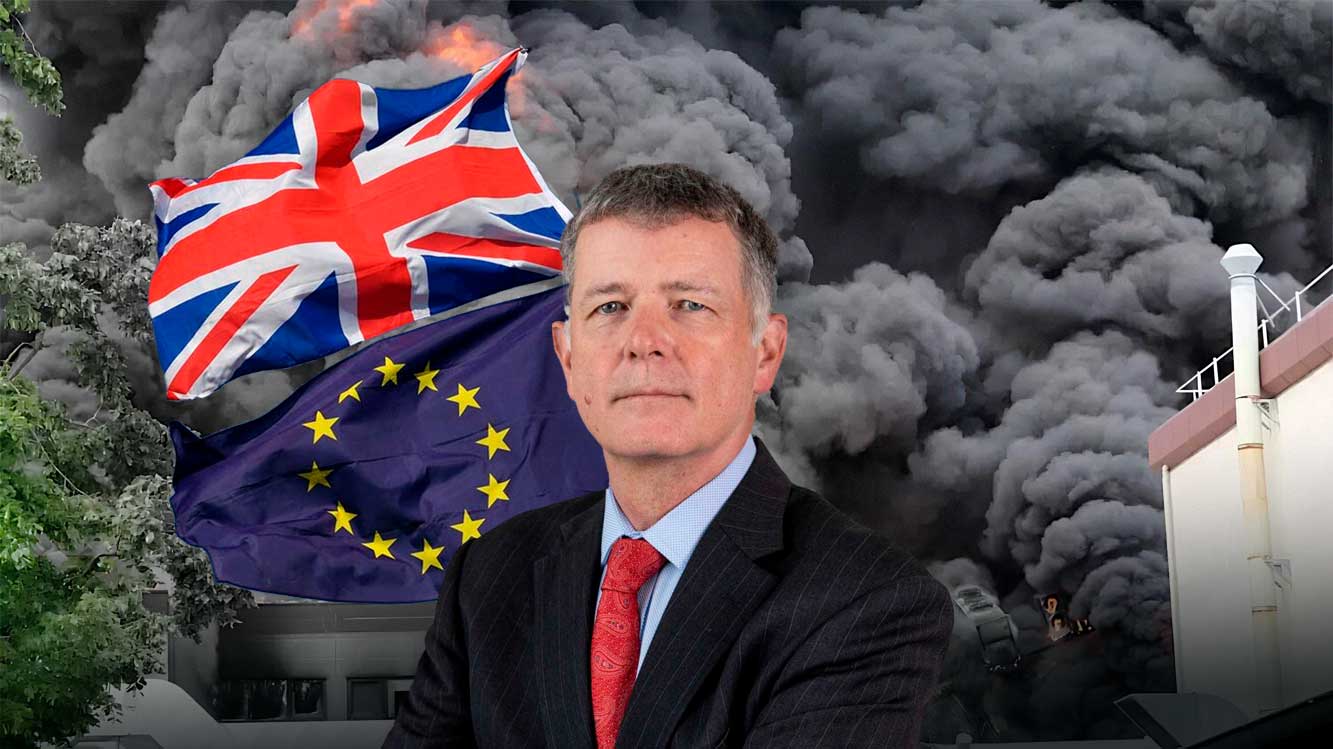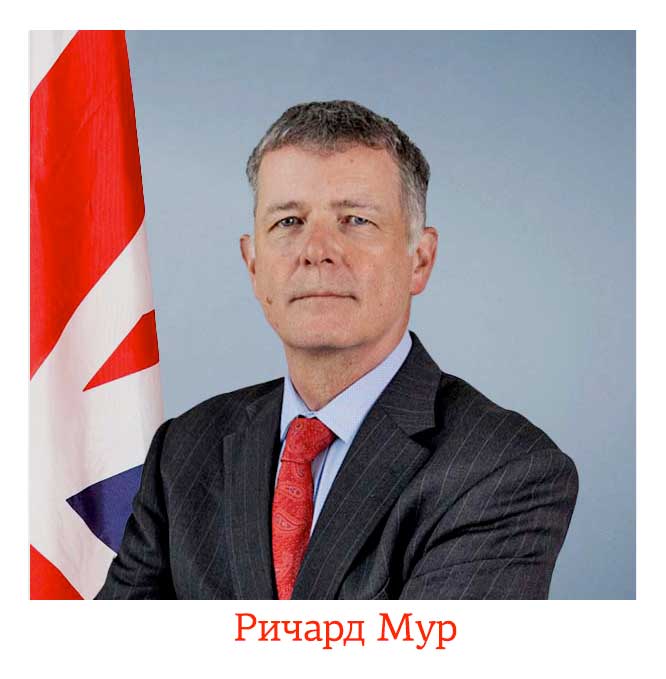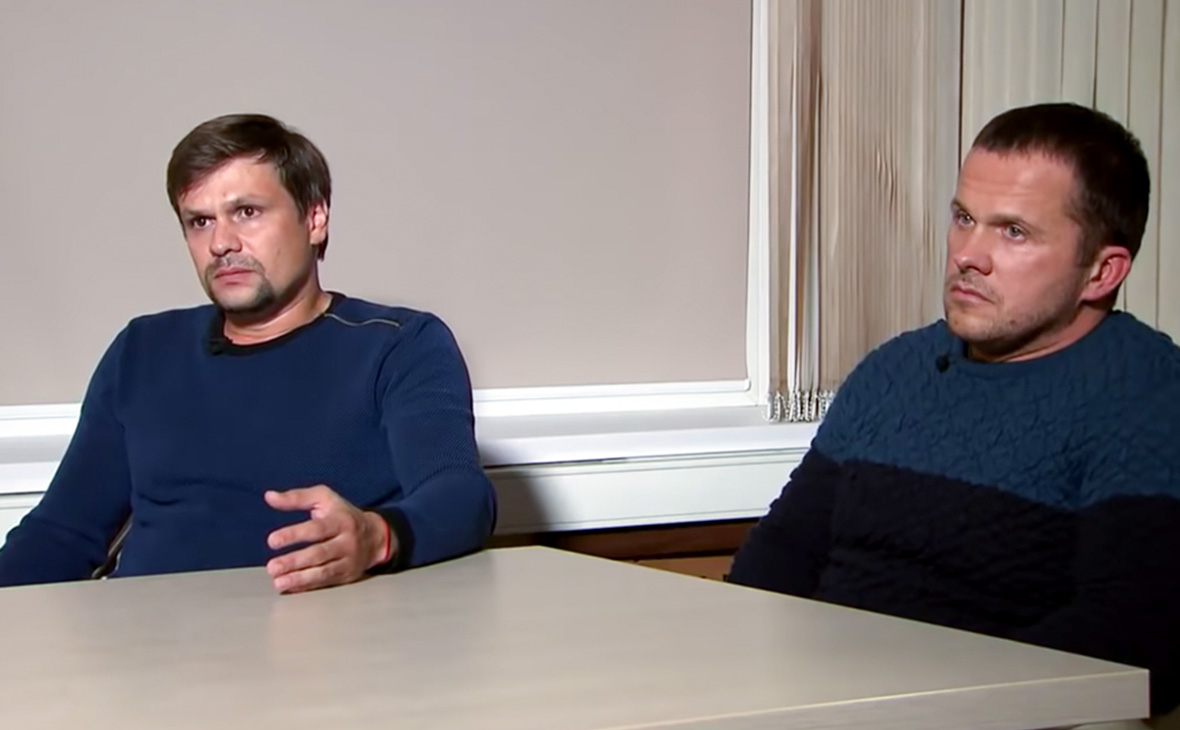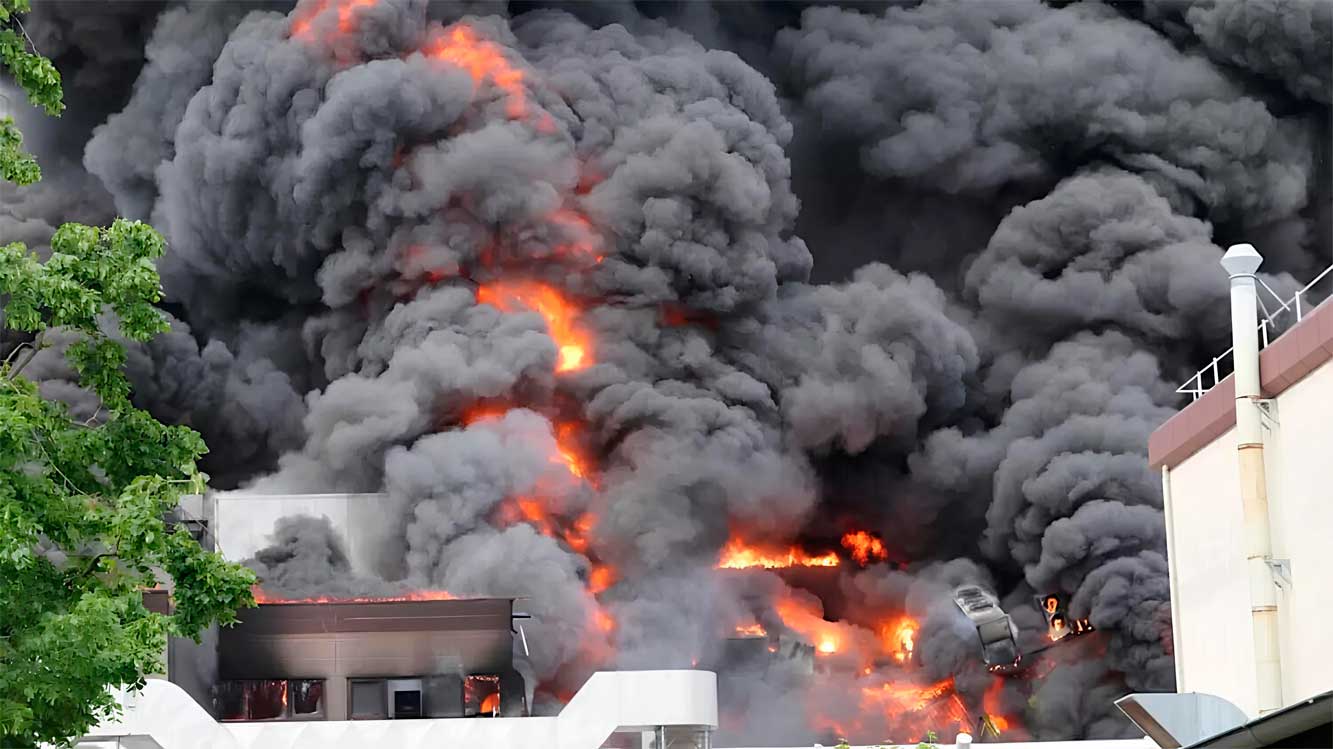
The head of the British intelligence service (MI6) Sir Richard Moore, speaking last week (29.11.24) at the British embassy in Paris together with the head of French intelligence Nicolas Lerner on the occasion of the 120th anniversary of the Entente (The Entente Cordiale Treaty was signed between Great Britain and France in 1904 and established diplomatic and military cooperation between former rivals. — NT), accused Russia of «dangerous and irresponsible» behavior.
Agencies quote Richard Moore, who said:
«...Recently, we uncovered a stunningly reckless campaign of Russian sabotage in Europe, while at the same time Putin and his aides resort to nuclear blackmail to instill fear of the consequences of aiding Ukraine and challenge the West's resolve...»
 According to Sir Richard Moore, in his 37 years in intelligence, he has «never seen the world in a more dangerous state». His colleague Nicolas Lerner agreed that «the collective security of all of Europe is at stake» due to the war in Ukraine. He said that Britain's experience in dealing with Russian aggression — the poisoning of the former Russian spy with Novichok in Salisbury in 2018 — proved invaluable for French intelligence, which seeks to neutralize Russian espionage activities.
According to Sir Richard Moore, in his 37 years in intelligence, he has «never seen the world in a more dangerous state». His colleague Nicolas Lerner agreed that «the collective security of all of Europe is at stake» due to the war in Ukraine. He said that Britain's experience in dealing with Russian aggression — the poisoning of the former Russian spy with Novichok in Salisbury in 2018 — proved invaluable for French intelligence, which seeks to neutralize Russian espionage activities.
«The Russians Have Gone Wild»
The head of MI6 did not say anything new, although he was unusually emotional when speaking about the threats from Russia. Western security services have long suspected that Russian intelligence is trying to destabilize Ukraine's allies through disinformation, sabotage, and arson.
Western officials link Moscow to several planned terrorist attacks in Europe, including:
– the arson of warehouses linked to Ukraine in London (in March 2024, a warehouse owned by a Ukrainian couple was set on fire in one of London's districts. In April, two Britons were formally charged with aiding Russian intelligence in connection with the arson of a warehouse in London owned by a company founded by Ukrainians. — NT);
– explosive devices in cargo plane packages (in July, one caught fire at a courier center in Germany, and another ignited at a warehouse in England).
Just before Richard Moore's speech about the danger posed by Russia, former MI6 chief Sir Richard Dearlove, who led British intelligence from 1999 to 2004, said in an interview with British broadcaster Sky (his words are quoted by the newspaper Daily Mail):
«...Britain must recognize the fact that Russia believes it is waging a 'real' war with the West, not just with Ukraine... Is it worth repeating that the US and Europe are in a 'very dangerous situation...»
Richard Dearlove corrects Donald Tusk, who called it a pre-war situation. «I think it's a real war,» — said Dearlove. To support this thesis, the former head of British intelligence referred to examples of Russia's hybrid war against European countries, including sabotage plots, cyberattacks, and «very aggressive actions»:
«...The heads of intelligence services — the CIA, my former place of service — publicly speak about the Russians 'going wild.' We have a big war on the continent, and everything can quickly spiral out of control...»
This is why the recent appearance of drones in the airspace over American airbases in Norfolk and Suffolk (England) has come under the close attention of British intelligence services. It has not yet been possible to determine who owns the drones, as reported on the BBC website.
«...The first reports of drone intrusions at three American airbases — RAF Mildenhall and RAF Lakenheath in Suffolk and RAF Feltwell in Norfolk — came in the period from November 20 to 22, and since then the planes have reappeared. Intelligence services are confident that the drones belong to a 'hostile state'...»
After failures during the preparation for war and the mass expulsion of spies from Europe, Russia is now learning from its mistakes and embarking on a new phase of political warfare against the West
In February 2024, the weekly magazine «The Economist» warned: «Russian spies are returning and they are more dangerous than before». The article's authors note that after failures during the preparation for war, the mass expulsion of spies from Europe, Russia is now learning from its mistakes and embarking on a new phase of political warfare against the West.
According to «The Economist», new data collected by the London think tank Royal United Services Institute (RUSI) suggests this. The article lists the «failures» in the work of Russian intelligence services, including the unsuccessful poisoning of Alexei Navalny in 2020, overly optimistic FSB forecasts about how smoothly the invasion of Ukraine would go, and the inability to prevent Western intelligence from stealing Russia's invasion plans. The SVR faced the problem of reducing its presence in Europe after about 600 employees were expelled from embassies across Europe, and at least eight «illegals» — intelligence officers operating without diplomatic cover and often posing as non-Russian citizens — were exposed, etc.
Sphere of «Special Influence»
According to RUSI data, as reported by «The Economist», the appointment of Sergei Kiriyenko, deputy head of the presidential administration, responsible for «special influence committees» at the end of 2022 to coordinate operations against the West, has led to more coordinated propaganda actions. An example is the disinformation campaign in Moldova last year, aimed at opposing the country's application to join the European Union. Campaigns aimed at undermining European support for Ukraine are also gaining momentum. In January, German experts published data on bots spreading hundreds of thousands of messages in German per day from 50,000 accounts over a month on the site X (formerly Twitter). On February 12, 2024, France exposed a large network of Russian websites spreading disinformation in France, Germany, and Poland.
The GRU, Russian military intelligence, as noted by «The Economist», is also revising its methods.
«...In recent years, the publication Bellingcat has exposed many employees, activities, and objects of the «29155» unit, which attempted to kill Sergei Skripal, a former GRU officer, in Salisbury in 2018. In its revelations, the group relies on open information and leaks from Russian databases. After this, the GRU concluded that its employees leave too many digital traces, particularly by bringing their mobile phones to secret facilities related to Russian intelligence and back. The GRU also realized that the expulsion of Russian intelligence officers from Europe made it difficult to conduct operations and control agents abroad — one of the reasons why the invasion of Ukraine was unsuccessful...»
According to the research center RUSI, a large-scale reform that began in 2020, after the start of the war against Ukraine, has accelerated. A new «Special Operations Service» was created. Employees of the «29155» unit no longer take personal or work phones to the facility after the clumsy Skripal poisoners Mishkin and Chepiga failed the mission. Instead, stationary devices are used. Training is conducted not on-site but at various safe houses. If previously half of the personnel were recruited from special forces, now most recruits have no military experience, making it difficult for Western intelligence to identify them from old photographs or database leaks.

Anatoly Chepiga and Alexander Mishkin (left to right) (Photo: RT in Russian / YouTube)
According to the London think tank Royal United Services Institute, a separate unit of the «Special Operations Service» — «Squad 54654» — is intended to create a network of illegals working in conditions that in Russia are called «full legalization» — the ability to pass scrutiny even under the close attention of a foreign intelligence agency. The GRU recruits contractors through front companies, hiding their names and data from government agencies, and embeds its employees in ministries not related to defense or in private companies. The GRU also targets foreign students studying at Russian universities, paying scholarships to students from the Balkans, Africa, and other developing countries.
Mission Possible
According to data collected by RUSI, Russian cyber activity is becoming more successful every day. In December last year, America and Britain issued public warnings about «Starstorm», an elite FSB hacker group that has been attacking NATO countries for many years. A month later, Microsoft stated that «Cozy Bear», a group linked to the SVR, had infiltrated email accounts belonging to some of the company's top executives. This followed a complex GRU cyberattack on Ukraine's power grid, which led to a blackout, apparently coordinated with Russian missile strikes on the same city.
The priority task of Russian spies is to prepare for conflict not only by stealing secrets but also by widening cracks in NATO
The «Economist» article cites a warning from Norway's intelligence service, published on February 12, 2024, that Russia «is seizing the initiative and gaining military advantage» in the war with Ukraine. In a similar report from Estonia, published just a day later, it is stated that the Kremlin «anticipates a possible conflict with NATO within the next decade».
The priority task of Russian spies is to prepare for this conflict not only by stealing secrets but also by widening cracks in NATO, undermining support for Ukraine in America and Europe, and weakening the West's influence in the Global South, — the authors of the RUSI report believe.
Russian acts of sabotage indicate future aggression. In May 2024, the British think tank «Chatham House» published a report tracing a certain pattern indicating future hostile actions by Russia. The report cites an example of one such case of sabotage — the arson of a business in London linked to Ukrainian business in March 2024. (We mentioned this story at the beginning of the review. — NT). That conspiracy was led by a Briton recruited by Russian intelligence to work for Wagner PMC mercenaries. He and four of his accomplices were charged under the new UK National Security Act. This was the first case brought under the new legislation to combat foreign agents. But this case, as the authors of the report believe, should not be seen as isolated. A much larger and more serious Russian sabotage campaign, the report says, covers all of Europe. Even more worryingly, behavior patterns match predictions of what Russia will attempt to do in the run-up to open conflict with NATO.
According to the authors of the report, there are few places left in Europe that are not targets. They remind that in April, Germany arrested two people suspected of planning terrorist attacks, with targets including American military bases. Swedish security police are investigating possible sabotage related to repeated train derailments in the north of the country, and Estonian security services are recording increased efforts by Russia to recruit locals to attack their own government. Recruiting trusted individuals to carry out sabotage is just one of the ways Russia is already attacking Europe beyond Ukraine.

An arms factory burns in Berlin. Photo: B.Z
According to the authors of the «Chatham House» report, Poland has become a special target. Key logistics points for delivering goods to Ukraine are of obvious interest to Russia. Polish authorities arrested a person who was scouting security measures at the important Rzeszów airport, apparently to facilitate an assassination attempt on Ukrainian President Volodymyr Zelensky, who was supposed to transit through this airport. Poland also neutralized at least one network of agents created for reconnaissance and sabotage on the country's railway network.
The «Chatham House» report also mentions signal interference in the air and at sea:
«...Russian electronic warfare methods disrupt flights in the Baltic Sea region. The problem, which arose many years ago, covers an increasing area of Europe and is becoming more serious...»
«Chatham House» reminds that in March, Russia jammed satellite signals affecting the plane on which British Defense Minister Grant Shapps was returning from Poland, and in April, according to numerous reports, similar interference was a problem for several British flights.